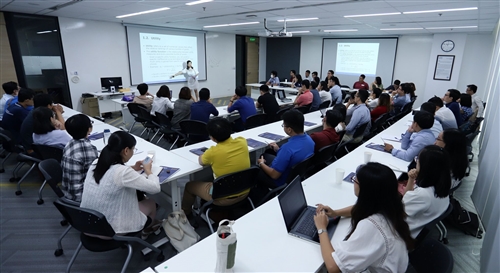The two options for Master of Public Policy program at Fulbright School of Public Policy and Management – Policy Analysis and Leadership & Management – are designed to meet various needs of the students regarding the schedule, scholarship, and financial status. However, the two concentrations have one thing in common: the academic rigor that pushes students to graduate with the master's degree they can be proud of. Depending on their background (public or private sector), students will experience the unique academic environment of each concentration in a different way, but in general, students are required to truly invest in their studying to get the equivalent reward.
From world-class education options
Policy Analysis (PA) is a concentration with an academic background in economics and policy teaching of which Harvard University's top professors laid the foundation more than two decades ago at FETP (Fulbright Economics Teaching Program). This is the first Master of Public Policy program in Vietnam, and the only in Southeast Asia to achieve international accreditation by the Network of Schools of Public Policy, Affairs, and Administration (NASPAA). Meanwhile, designed with a similar academic standard that combines Harvard's up-to-date knowledge of economics, management, and leadership, the Leadership and Management (LM) concentration is a special version tailored for middle and senior managers of all industries.
Therefore, FSPPM's academic background and the quality of the Master in Public Policy program are suitable for those who are ambitious to pursue a graduate program that follows U.S. educational standards but is located in Vietnam.
Phan Thi Mong Thu, a student of MPP22-LM class, said: "The NASPAA-accredited training program and unique learning experiences are the main reasons for me to choose to study at FSPPM."
Meanwhile, Le Thi Oanh, an MPP22-PA alumnus who decided to postpone her work at the Da Nang Department of Home Affairs for more than one year to study at FSPPM, said: "At Fulbright, I got a chance to experience an international-standard learning program in comprehension with Vietnam's policy case studies. It is the combination of theoretical knowledge and case studies that made the class extremely enjoyable and interesting".
To elaborate on this, FSPPM's senior lecturer Nguyen Xuan Thanh said that FSPPM's Master of Public Policy training program was formed by the school's experience of over 25 years incorporating Harvard's latest copyrighted knowledge of economics and management into Vietnamese context.
"You will find in Harvard classrooms the knowledge of modern economics and management and case studies from different countries for reference. But a class that blends Harvard's knowledge and Vietnam's reality can only be found at FSPPM."
Vu Hai Truong, a alumnus of the LM22 class, said FSPPM's MPP program is flexibly imported to suit Vietnam's practical contexts.
"The program that is designed to be deeply rooted into Vietnamese context is a unique characteristic of FSPPM. It helps me apply the academic theories to my current work as well as relate more closely to the knowledge I gained here," he said.
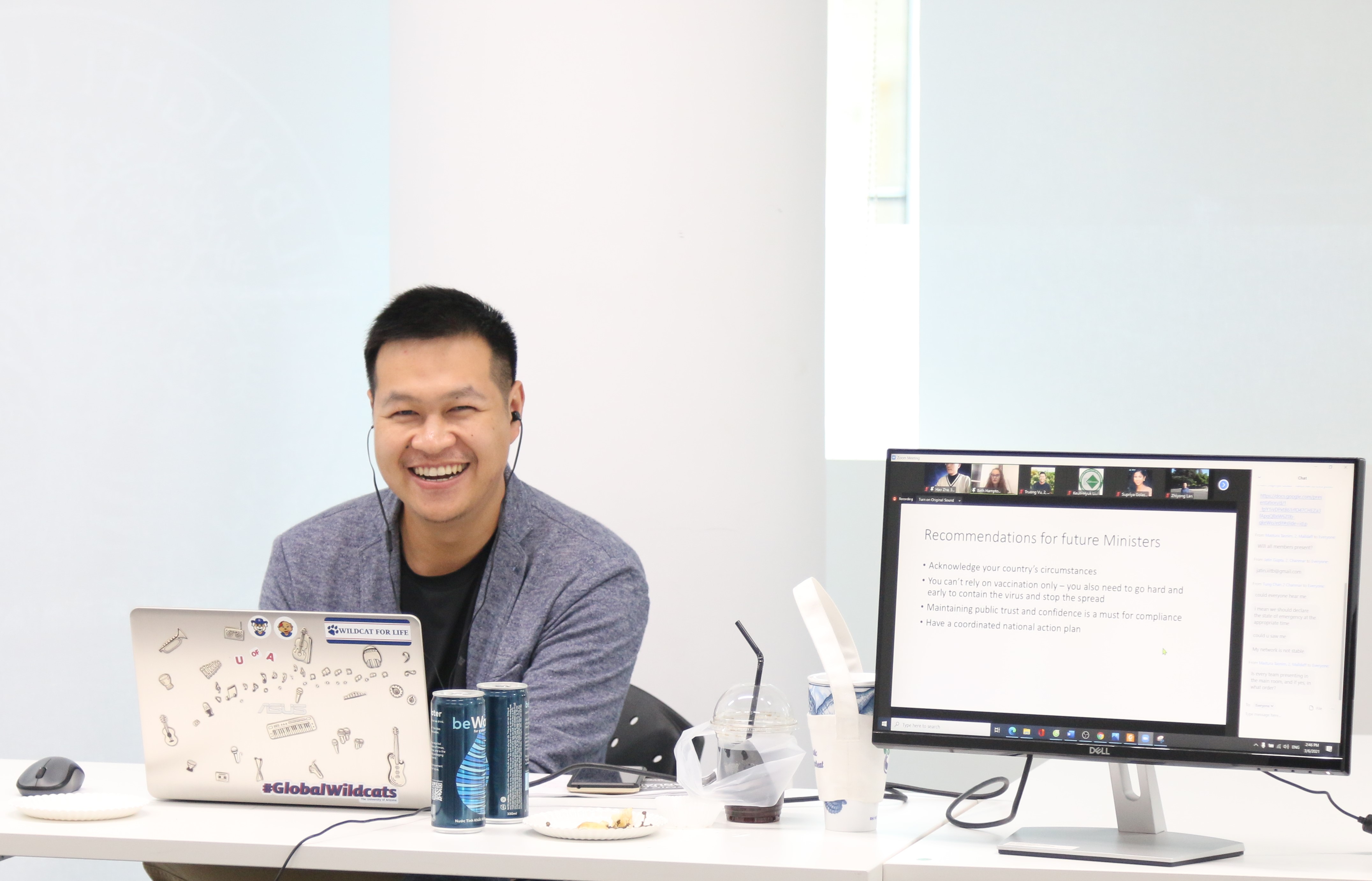
Time: The most valuable opportunity cost
With a 15-month full-time schedule, PA is the only concentration to receive full scholarships, exclusively for policy consultants and policymakers from public areas, lecturers, research fellows from public organizations, and a partial 50% scholarship is granted to managers and executives from non-profit organizations and social enterprises, fresh graduates from universities inside and outside Vietnam.
For in-office civil servants, especially those in managerial positions, the sacrifice of time and the suspension of work for studying at FSPPM must be taken into serious consideration. But it is obvious that serious investment in education would bring in good results in their career. The time investment for knowledge enrichment can be seen as venture capital for them to improve their professional capacity. The full-time learning experience offers an opportunity for students to realize the gaps of knowledge and the shortcomings of their professional skills so that they could improve themselves and identify the direction for their career paths.
According to Mr. Nguyen Xuan Thanh, there was a time in Vietnam when many public servants who wanted to pursue graduate studies joined graduate programs which allowed them to attend classes in just several hours after work. Although it seemed to be convenient for these public servants, these programs failed to offer an ideal academic environment where students could be deeply engaged in intellectual exchanges with the faculty and the diversified groups of classmates and be inspired to absorb new knowledge.
"Experiencing the school's cultural and academic environment is a very important thing in ensuring learning quality. Students can learn from the faculty, their classmates, and even from the way a class is organized," he said.
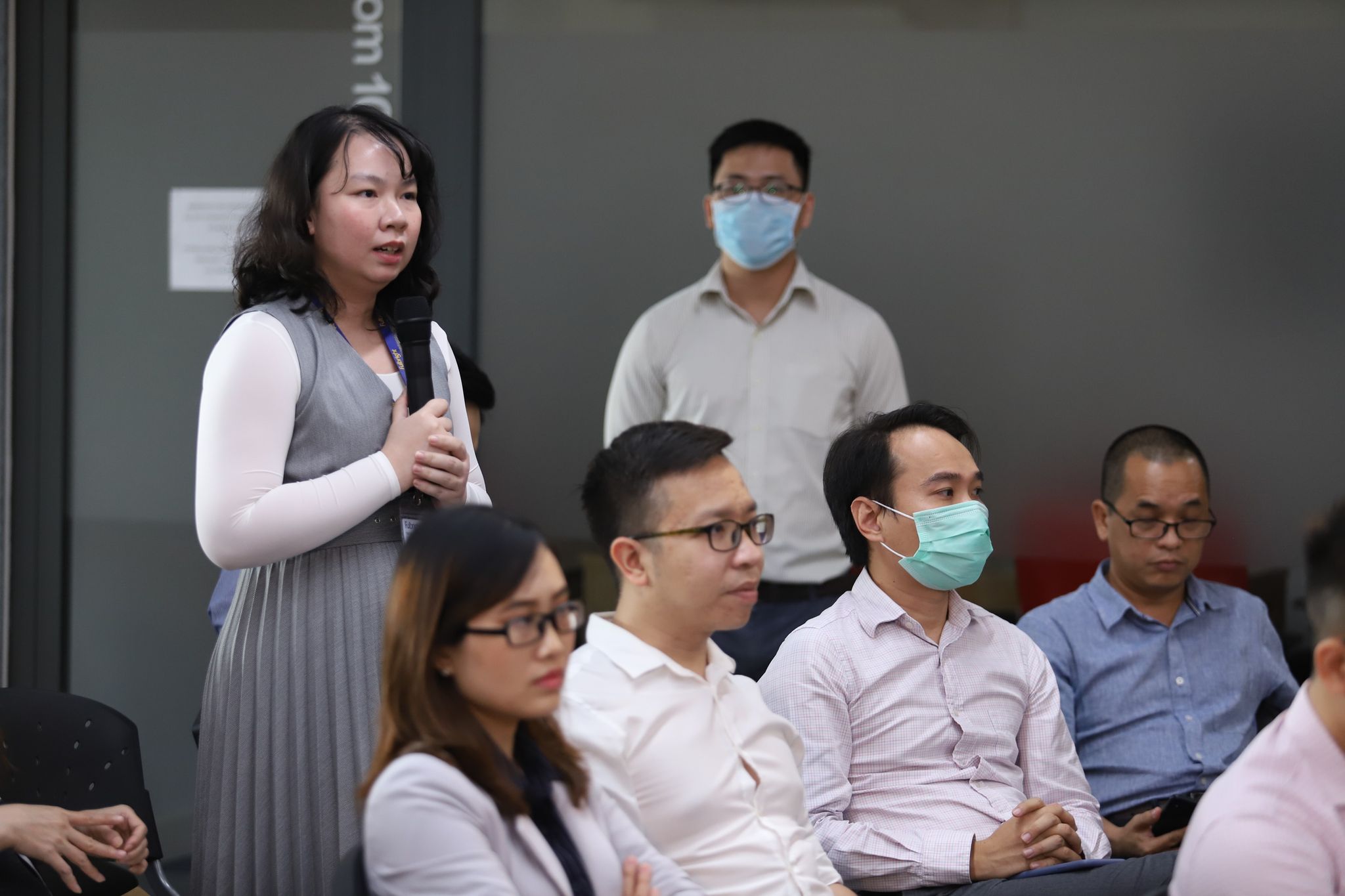
With Ngo Nguyen Thao Vy, a lecturer from Ho Chi Minh City University of Law, PA22 Alumnus, she still cannot forget the "panic attack" when she got introduced to Quantitative Methods, one of the best courses offered by the PA concentration at FSPPM. In the first class, students were exposed to a lot of English terms and Thao Vy struggled to finish the first assignment of this course.
"I even doubted myself for pursuing this course and wondered if I could survive the first two semesters. Despite having certain achievements in the field of legal studies before, I feel so small in the "sea" of new knowledge. When I felt like a lonely eagle struggling to figure things out, I got help from the instructors and teaching assistants. When it came to the third assignment, I grasped the meaning of the course and identified the methods I could apply in legal analysis journals that I will write later," she recalled.
Thao Vy claimed that only a few schools in Vietnam can push students' boundaries like Fulbright, where students unleash their full potential under the pressure of assignments and readings with near-Harvard standards in a short period of time.
"What contributes to the success of MPP program at FSPPM is that while the same training model and methods can be applied in other educational institutions, the enthusiasm and understanding of the faculty have helped to inspire students who had the intention of giving up to return to a more serious learning cycle."
From a short-term training program on applied economics for government officers to a Master of Public Policy program, over the past 25 years, FSPPM has seen a huge number of students majoring in Policy Analysis. Among more than 1,500 alumni from 62 out of 63 provinces across the country, about 62.3% are from the public sector.
In an attempt to diversify on-demand training, this year, FSPPM allows university graduates to apply for the MPP program without being required to have two years of working experience like before. It aims to encourage research-oriented students and students who plan to pursue postgraduate studies while taking advantage of the NASPAA-accredited graduate program.
LM – the concentration characterized by high applicability
Leadership & Management is a concentration introduced by FSPPM just several years ago. It has a curriculum based on modern economics, policy, and management with Harvard standards. The program is tailored based on the demand of the market, with prospective students having solid career backgrounds and practical experience from the public and private sectors, social organizations, education, and research institutions.
This concentration offers more flexibility than Policy Analysis in terms of teaching and learning methods: it can be a part-time program, suitable for students who hold managerial positions in companies and organizations and cannot leave their jobs to dedicate their full-time study at FSPPM. The courses of this concentration are characterized by high applicability, suitable for decision-makers in companies and organizations.
Trinh Thi Diep Thu, a student of LM22 class and an officer from the Ministry of Transport, said: "To compare with other graduate programs offered by public universities, the MPP program at FSPPM is more practical, open-minded and professional. The distinctive value of this program that I earn is the deep understanding of how the society works and communicates and I can apply agile thinking at work in a public office."
Vu Hai Truong recalled a "bad experience" at work as an NGO officer. He got the approval from leaders of a local government in Vietnam to arrange a team of doctors and medical staff in the U.S. to the Vietnamese province to provide ophthalmology treatments and distribute medicine and glasses for local people. But at the last minute, the local leadership canceled the decision, causing losses to those involved and affecting his reputation.
"After studying here at FSPPM, I realize the importance of the interaction between NGOs and policymakers, and I understand that such incident happened because I did not know how to reach out to local authorities, to negotiate and work with them."
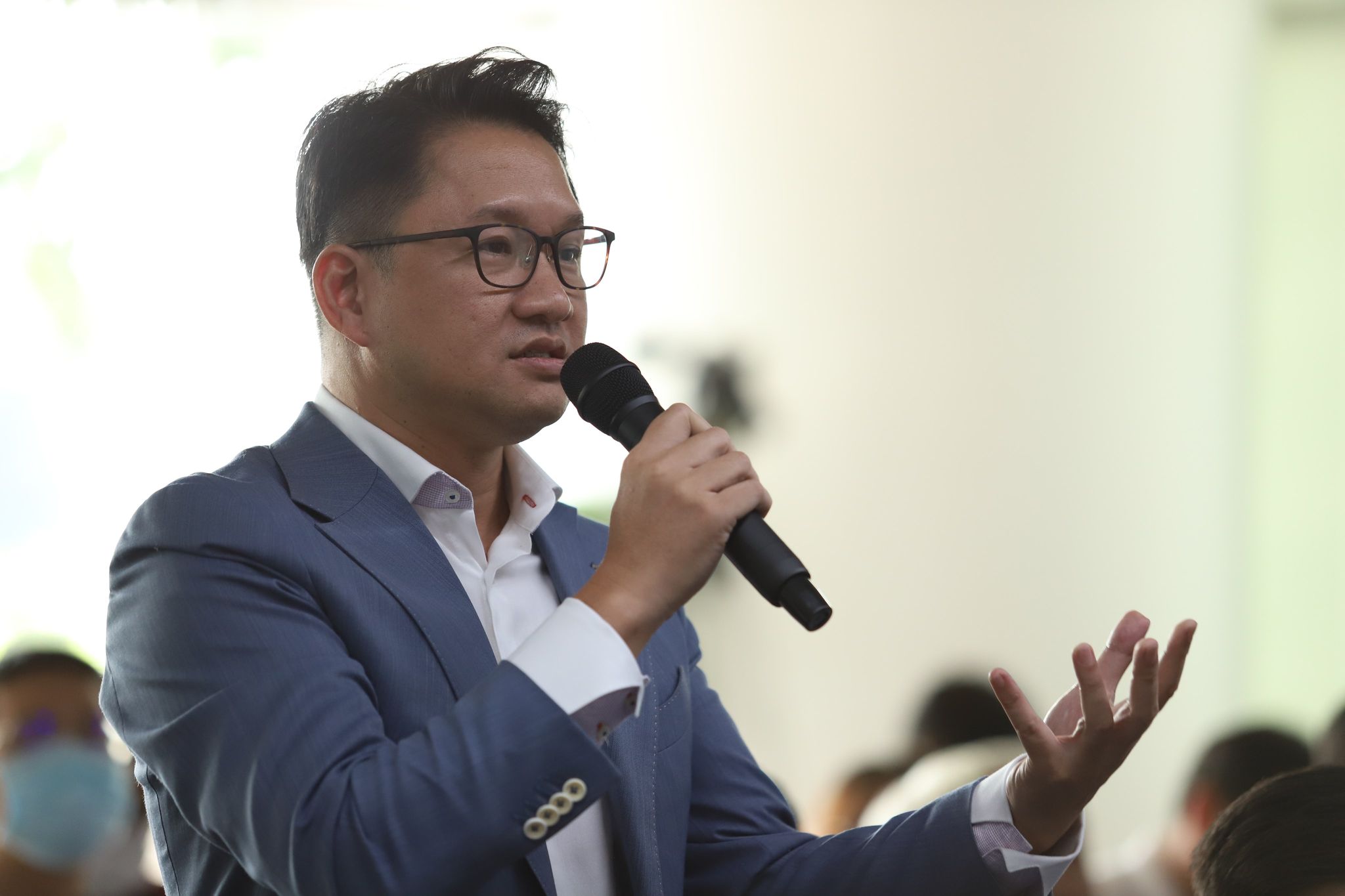
Vu Minh Anh, a student of LM22 class, shared his view that learning at FSPPM helped a businessman like him to interact and have empathy with those from the public sector and social organizations.
"Today, all issues need an interdisciplinary approach, so this is an opportunity for me to learn their analytical frameworks and their way of thinking to have empathy and efficiency at work. Being introduced to different perspectives has humbled me and helped me become more understanding with policymakers..."
Although the teaching and learning methods are flexibly designed to be suitable for students' time budgets, the program's training quality is still ensured. Because of the condensed schedule (every 6-8 weeks, students gather to spend 9 consecutive days studying on the campus), the lectures are designed more concisely and more effectively. Since they have to absorb a huge amount of knowledge in such a short time, LM students will touch on the most important topics and spend time on discussions, debates, and exchanges with instructors and classmates, cutting down the time spent in class for theoretical subjects that can be done through readings.
"The huge amount of knowledge, the case studies, and teamwork under the pressure of time will help students practice discipline and make specific plans for the best learning experience at Fulbright," lecturer Nguyen Xuan Thanh concluded.
- Xuan Linh-Thuy Hang
Related Articles
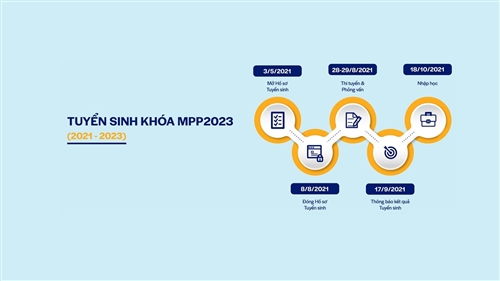
Open for Application: Master of Public Policy Program 2023 (MPP2023)
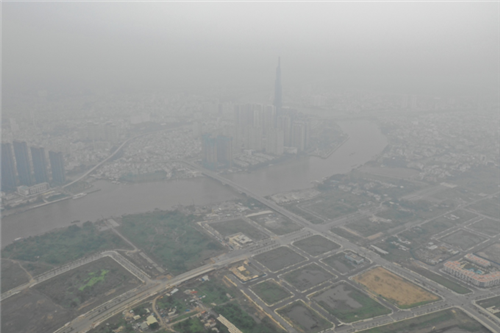
Better governance: the key to better air quality?


